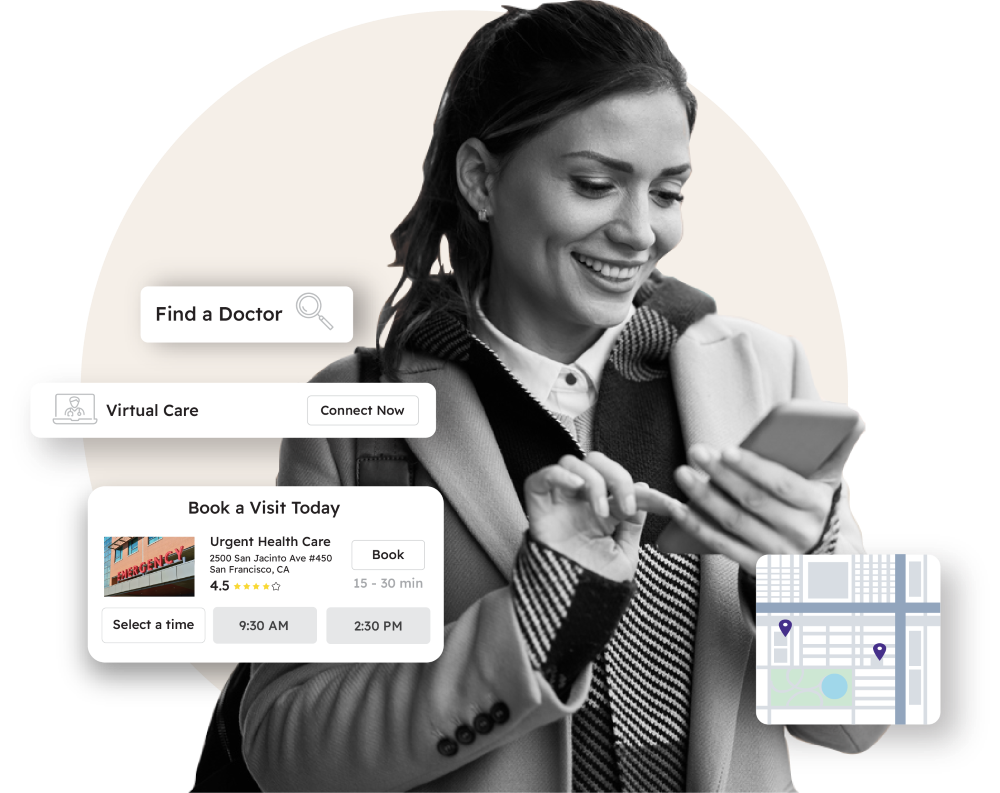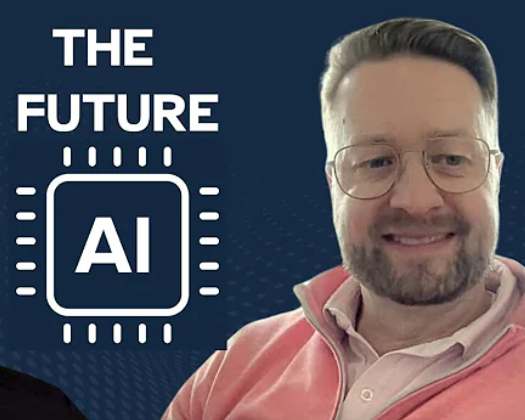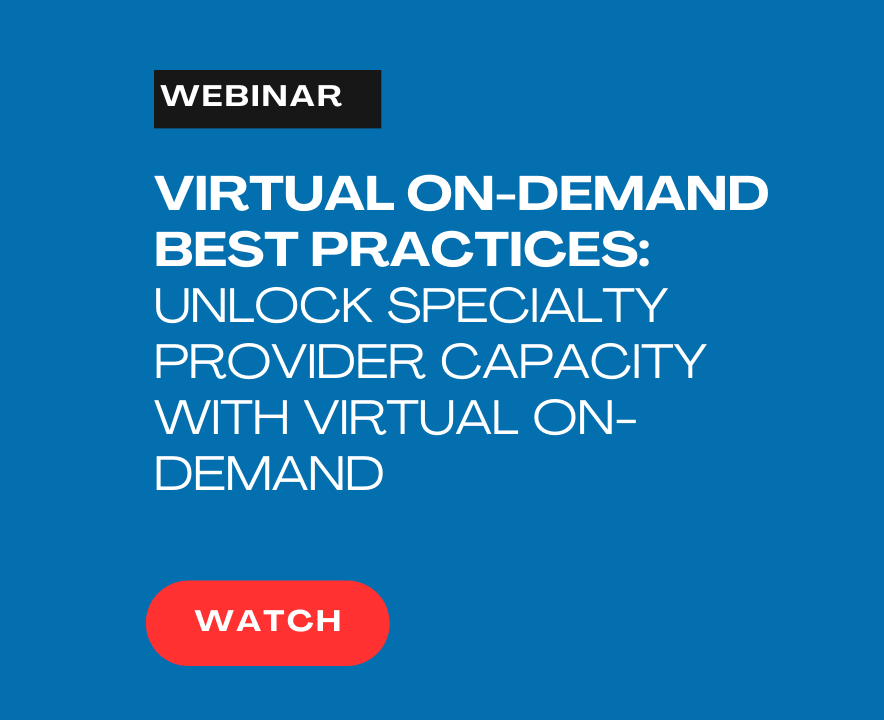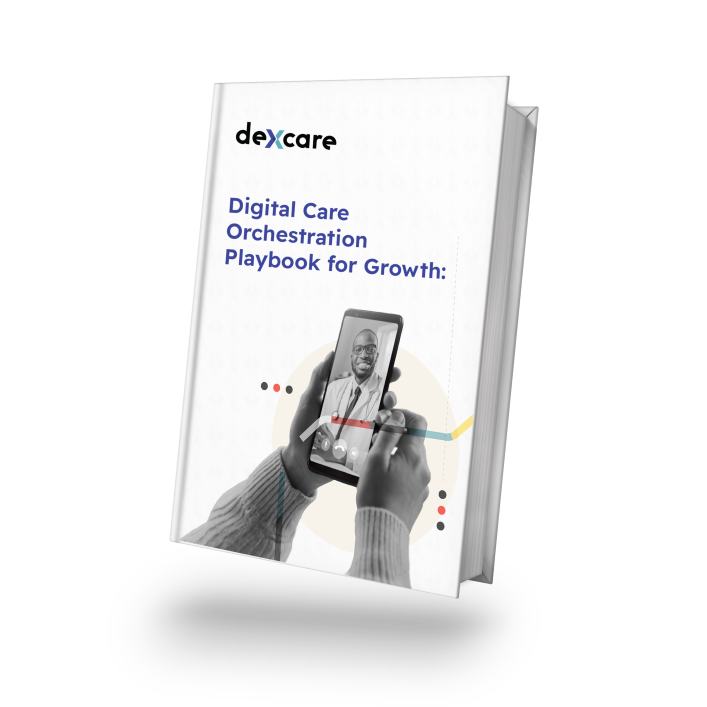Break Free from Legacy Healthcare Systems

The digital revolution is long past being an imminent trend — it’s a business imperative.
Before the pandemic most industries were actively integrating digital applications. And now, customer pressures — and an expectation to easily find care online — are pushing healthcare systems to rapidly modernize the digital front door. From real-time scheduling and chat bots to virtual appointments, the care journey has evolved, and a digital experience guides the way.
As consumer expectations force a digital rethink, the pace of change can be slow. Why? Because healthcare has relied on outdated, monolithic systems — often by design to keep data siloed — that don’t integrate with newer technology and inhibit transformation.
This approach to a technology stack no longer works in a connected world, where consumers have evolving expectations about what makes a great digital experience. Modern consumers want intuitive, and easy-to-use search capability, and apps to immediately find available appointments, nearby clinics, or to speak with a provider.
Consumers expect a fast, and commerce-like transaction that narrows the gap between intent and action. And legacy systems are a roadblock to digital success, limiting integration of the latest methods, techniques, and technologies.
Breaking down IT hurdles
While healthcare systems are bringing online newer and better tools, most are limited by their software infrastructure. The tech stack is only as strong as the weakest piece, and outdated systems prevent unlocking the full capability of modern technology. Even worse, legacy systems prevent adopting technology that provides a frontend experience that today’s consumers expect.
Break away from a monolithic stack and use APIs to keep up with UX-trends, new features, and the ever-changing platforms and devices that consumers embrace.
API toolkits provide the interoperability to connect a modern frontend with the legacy backend. And APIs work to decouple the presentation layer from databases and a CMS to deliver only the data needed, giving you the freedom to move quickly and undergo change.
Our years of healthcare work has enabled us to bridge the gaps, providing a ready-to-go solution. We synchronize to existing databases, APIs, and backends, and can deploy to one or all channels.
A modern experience doesn’t have to be hard:
- Attach to all major CMS and platforms
- Utilize existing APIs to sync and publish content
- Never touch patient data
- Automatic transcoding and server-side rendering
- Set performance guardrails to prevent future slowdown
- Uses serverless delivery for immediate scale and reliability
A bolt-on digital front door
DexCare partners with healthcare systems to deliver a bolt-on interface that provides an immediate facelift to the digital front door. Here are some upgrade options that don’t require scrapping the legacy system, but work together to display modern features:
Fast, Care Options
Customers want booking options. Instead of guarding provider availability within cumbersome directories, unlock availability, and attach timeslots to the pages discovered most often from organic search.
Landing pages are gateways, of course, but they should double a decision point. Blogs, articles, specialty pages, and other resources can showcase Care Options to display available providers, matched by page content. For example, as customers discover an article about seasonal allergies, they also see allergists with time-slot availability.
Optimize what you’ve got
Our CMS-agnostic frontend is an immediate upgrade. By decoupling the front and backend, your website can rely on the same dynamic data, but present a contemporary experience. Fast-loading pages, a mobile-first design, and app-like capabilities can be added without a site-wide rewrite. Simply put, customer acquisition – from discovery to scheduling – becomes frictionless and lightning fast.
Replace and jumpstart your provider directories
Most healthcare websites offer directories – a central clearinghouse to find the right provider. Unfortunately, most directories aren’t built for mobile devices, nor offer the features that users want, like natural-language search, geo-targeted availability, filtering or personalized results. Our interoperable directories work with your data to create a experience that seamlessly connects patients to the right providers, locations, or care modalities.
Rely on search
Delivering the best care relies on understanding the customer. Search is the backbone of any great experience, and DexCare goes beyond rigid, and basic keyword results to deliver precise, real-time choice based on user intent.
Our AI-powered search can power sitewide search, directories, and be used to optimize landing pages to ensure each stage of the customer journey is relevant, and an opportunity to book care.
Embracing the Future
The argument for replacing legacy systems begins with older, siloed technology that can’t provide the digital experience customers expect.
Legacy systems were once a perfect match for the healthcare industry’s needs, but that time has passed. Today’s healthcare requires technology that is cooperative, agile and capable of evolving to match customer expectations in the always changing digital world.
It’s not easy to let go of the past, but the modern digital world has outpaced legacy healthcare systems. Embracing digital transformation is a path to a faster, more secure, and user-friendly infrastructure.
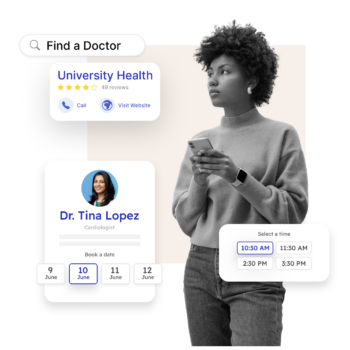
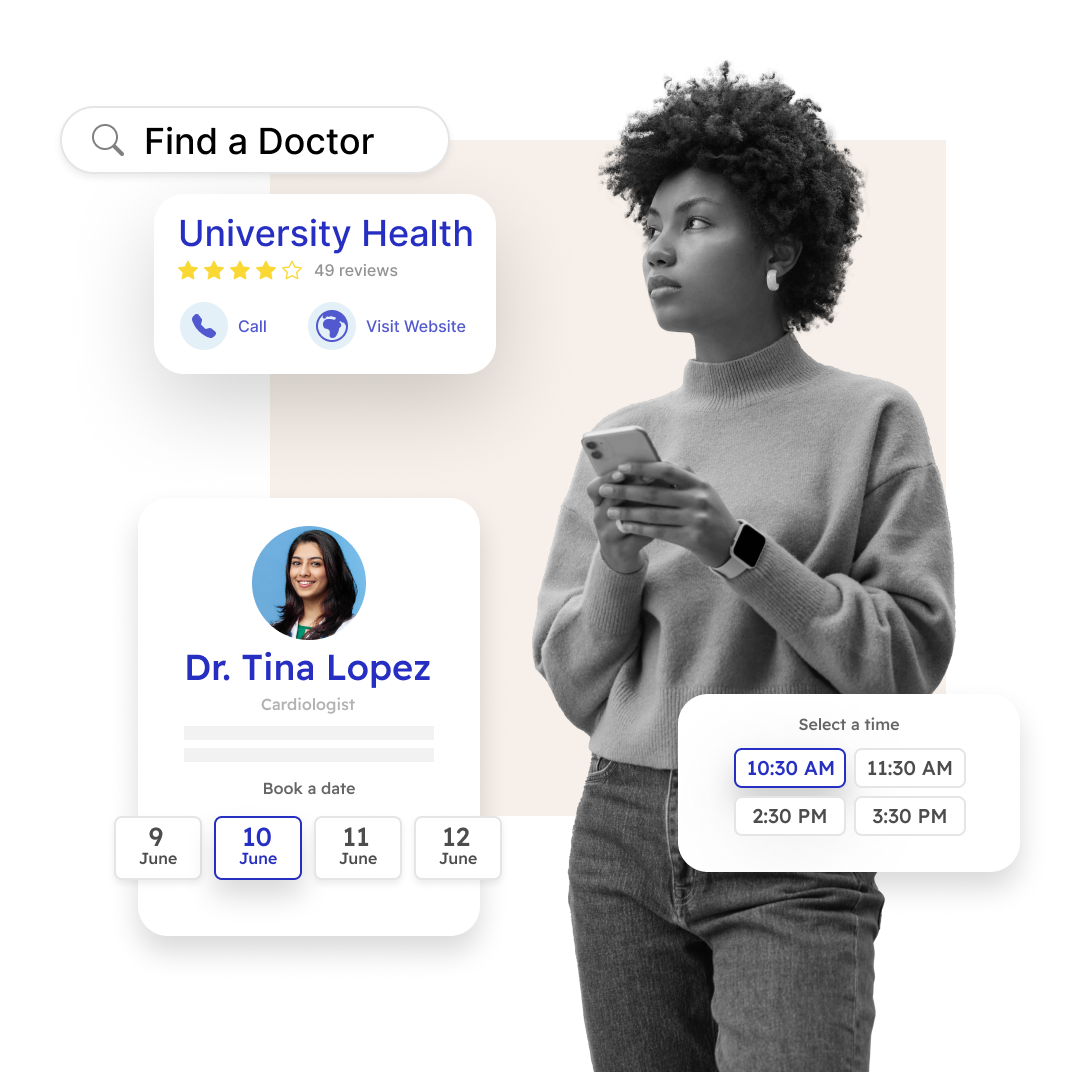
 Veterans Affairs
Veterans Affairs
